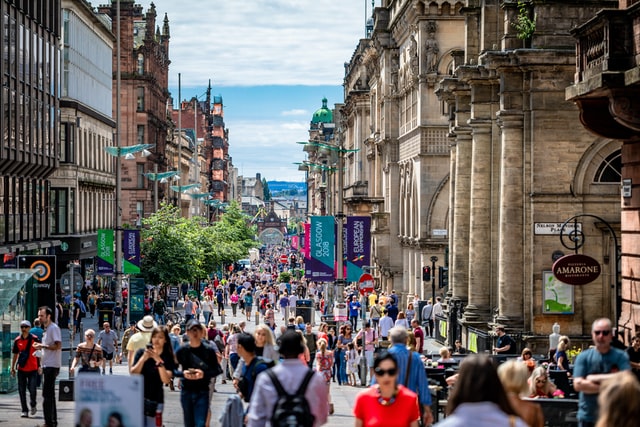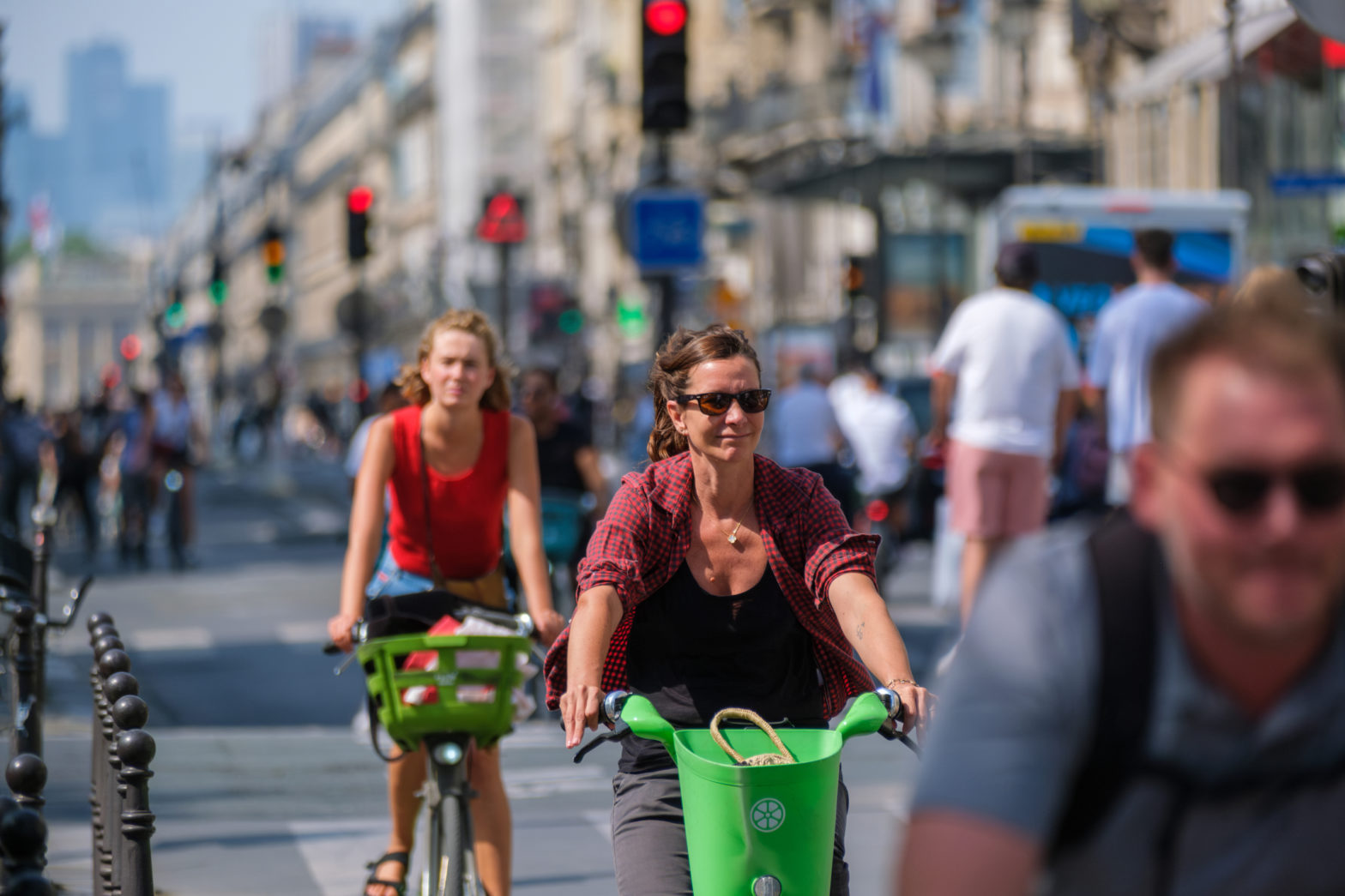
Photo: Artur Kraft on Unsplash
Glasgow revamps open data hub to boost engagement
13 September 2021
by Sarah Wray
The City of Glasgow in Scotland has launched a new Open Data Hub which includes new types of data, interactive apps and data ‘stories’ to better engage residents, businesses and innovators.
New data shows cycling and walking trends across the city and highlights the impact of the COVID-19 pandemic. Apps include city footfall and cycling dashboards, a 3D digital model, and a map showing COVID-19 data by neighbourhood. Stories aim to bring the data to life and set it in context.
Councillor Angus Millar, Chair of the Digital Glasgow Board, said: “The use of data can help us understand our city better, support innovation and drive improvements in the delivery of public services. Glasgow’s Open Data hub offers us – the council and our partners, as well as residents, business and organisations in the city – the chance to take a new and unique look at how Glasgow operates, to see what works well in the city and how it could be improved.
“We want to allow people to engage with the portal to not only gain information on aspects of the city they are interested in, but to help shape decision-making and understand how the delivery of public services can be transformed through the use of data.”
The hub is based on ESRI technology and builds on Glasgow’s work during the pandemic to develop a range of COVID analytics tools.
Coming soon
Over the coming months, there are plans to include more mobility-related data to show how people and traffic move through neighbourhoods and how people use local amenities such as retail and parks. This could include object-detection data gathered from the network of CCTV cameras and mobility data generated from mobile phone data that the city has access to through working with the Urban Big Data Centre at the University of Glasgow.
Stephen Sprott, Data and Innovation Project Manager at Glasgow City Council, told Cities Today: “By sharing this, we hope that we can engage with [people] in a more equitable way when discussing new investments or changes to the city infrastructure – e.g. where and how we might put in more cycle infrastructure, or how we might alter our parks to be more attractive and easier to use and access. By sharing data we have on city movement, this gives citizens and stakeholders more insights upon which they can engage in dialogue and discussion with the Council about changes to future services and infrastructure.”
The data can also help the city involve people in addressing challenges such as reducing carbon emissions and support businesses to adapt to the ‘new normal’ and recover from the pandemic.
“We also want to push out more information about our frontline services, and encourage other city stakeholders to share their data such as the private sector, other public bodies, academics and also citizens themselves,” Sprott commented.
The city plans to open up more of its education data and help parents and carers understand what it means for them and their children.
“This is where apps and stories will be important – to provide some headlines around the data and then let people explore this for themselves,” Sprott said.
Image: Artur Kraft on Unsplash (2018)






